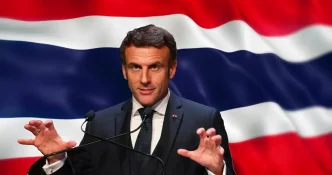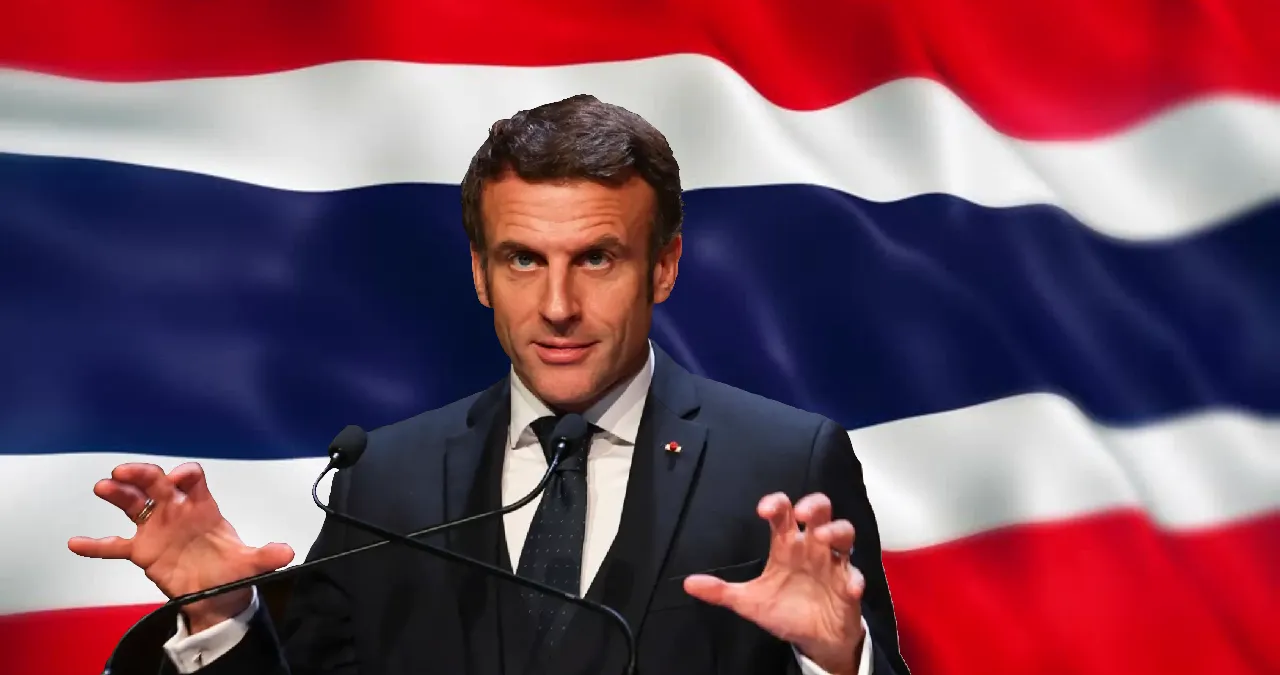Thai Prime Minister Paetongtarn Shinawatra and French President Emmanuel Macron held their first official phone conversation on June 27, 2025, marking a significant step in deepening bilateral relations between Thailand and France. Coming at a time of heightened global uncertainty, the discussion underscored a mutual commitment to elevating their partnership, addressing pressing geopolitical and economic issues, and fostering collaboration on regional and international fronts.
A New Chapter in Thai-French Relations
The phone call, which followed President Macron’s participation in European Council sessions in Brussels, highlighted the growing closeness between the two nations. In a social media post shared in both French and Thai, Macron emphasized the strengthening bond, stating, “Our countries are growing ever closer! Amid the major challenges of our time—such as the destabilisation of international trade principles—the people of Thailand can always count on France’s friendship.” This sentiment was echoed by Paetongtarn, who expressed her intent to elevate Thai-French relations to a strategic partnership at the earliest opportunity.
The leaders exchanged invitations for official visits, with Paetongtarn welcoming Macron to Thailand during the 2026 summit of the International Organisation of La Francophonie (OIF) in neighboring Cambodia. In return, Macron invited the Thai Prime Minister to France for an official visit and to participate in the Paris Peace Forum, signaling a shared desire to maintain high-level dialogue. Such exchanges are not merely ceremonial; they reflect a broader strategy to align on critical issues ranging from trade to security.
Navigating Economic and Political Uncertainties
Central to the conversation was the recognition of an increasingly volatile global landscape. Both leaders agreed that the current political and economic uncertainties necessitate closer cooperation, particularly in trade and investment. France, a key player in the European Union, expressed its intent to expand collaboration with Thailand in areas such as security and space technology—sectors where Bangkok is keen to modernize and strengthen its capabilities.
Thailand’s bid to join the Organisation for Economic Co-operation and Development (OECD) also received a boost, with France reiterating its support for a smooth accession process. Additionally, Paris voiced backing for the ongoing Thailand-EU Free Trade Agreement (FTA) negotiations, a critical step for Thailand to deepen economic ties with the European bloc. These endorsements are pivotal as Thailand seeks to position itself as a competitive player in the global economy, balancing its relationships with major powers while adhering to international regulations.
The discussion on trade comes against the backdrop of what Macron described as the “destabilisation of international trade principles.” While specifics were not disclosed, this likely alludes to ongoing disruptions in global supply chains, tariff disputes, and the broader erosion of multilateral trade frameworks. For Thailand, a nation heavily reliant on exports, such challenges underscore the importance of diversifying partnerships and securing allies like France to navigate potential economic headwinds.
Regional Stability and ASEAN’s Role
Paetongtarn emphasized ASEAN’s central role in addressing regional challenges, particularly transnational crime. Issues like call center scams and cybercrime have plagued Southeast Asia, often exploiting porous borders and technological vulnerabilities. Thailand’s proactive measures to combat these threats were highlighted, with the Prime Minister affirming readiness to collaborate with neighboring countries and international partners, including France. Macron’s support for these efforts suggests potential for joint initiatives, possibly involving expertise-sharing or technological assistance from Paris.
On the sensitive issue of the Thai-Cambodian border, Paetongtarn reiterated Thailand’s commitment to peaceful resolution through bilateral negotiations. She underscored the importance of the Thailand-Cambodia Joint Boundary Commission (JBC), which recently convened in Phnom Penh, as a mechanism for dialogue. The Prime Minister expressed hope that France, as a trusted partner, could play a constructive role in fostering an environment conducive to these talks. While Macron acknowledged Thailand’s approach, his response was measured, indicating a willingness to consider facilitating cooperation without committing to direct involvement at this stage.
Global and Regional Conflicts in Focus
The leaders also turned their attention to broader geopolitical crises, including the situations in the Middle East and Myanmar. On the Middle East, Paetongtarn reaffirmed Thailand’s call for a ceasefire and an end to violence from all parties, aligning with a broader international push for de-escalation. Regarding Myanmar, where political instability and violence have persisted since the 2021 military coup, Thailand expressed readiness to play a constructive role. Supporting Malaysia’s leadership as ASEAN Chair, Paetongtarn stressed the need for dialogue and participation, asserting that lasting peace must be driven by the Myanmar people themselves.
This stance reflects Thailand’s delicate balancing act as a neighbor to Myanmar, where it has historical ties and significant interests, including managing refugee flows and border security. By advocating for an inclusive peace process within the ASEAN framework, Thailand positions itself as a mediator rather than a partisan actor—a role that could gain further traction with international backing from partners like France.
Looking Ahead: A Strategic Partnership
The phone call between Paetongtarn and Macron signals more than a diplomatic courtesy; it lays the groundwork for a strategic partnership that could yield tangible benefits for both nations. For Thailand, French support in areas like OECD accession, EU trade negotiations, and security collaboration offers a pathway to bolster its international standing. For France, deepening ties with Thailand strengthens its influence in Southeast Asia, a region of growing geopolitical significance amid competition between major powers like the United States and China.
Yet, challenges remain. The global economic uncertainties highlighted by both leaders are not easily resolved, and regional tensions—whether along the Thai-Cambodian border or in Myanmar—require sustained diplomatic effort. If the proposed high-level visits materialize, they could serve as critical platforms to solidify commitments and address these issues head-on. Moreover, France’s potential role in facilitating dialogue between Thailand and Cambodia, if pursued, could enhance its reputation as a mediator in the region.
Public sentiment in Thailand, gauged through social media reactions following the announcement of the phone call, appears cautiously optimistic. Many see the engagement with France as a positive step toward economic diversification and international cooperation, though some express skepticism about tangible outcomes given the complexity of global challenges. As one user on social platforms noted, “Friendship is good, but we need real investment and support to make a difference.”
As Thailand and France chart this new phase of their relationship, the focus will likely remain on translating diplomatic goodwill into actionable outcomes. Whether through trade agreements, security partnerships, or regional stability initiatives, the stakes are high for both nations. For now, the commitment to dialogue offers a promising start, but the true test lies in navigating the turbulent waters of global politics and economics together.
















